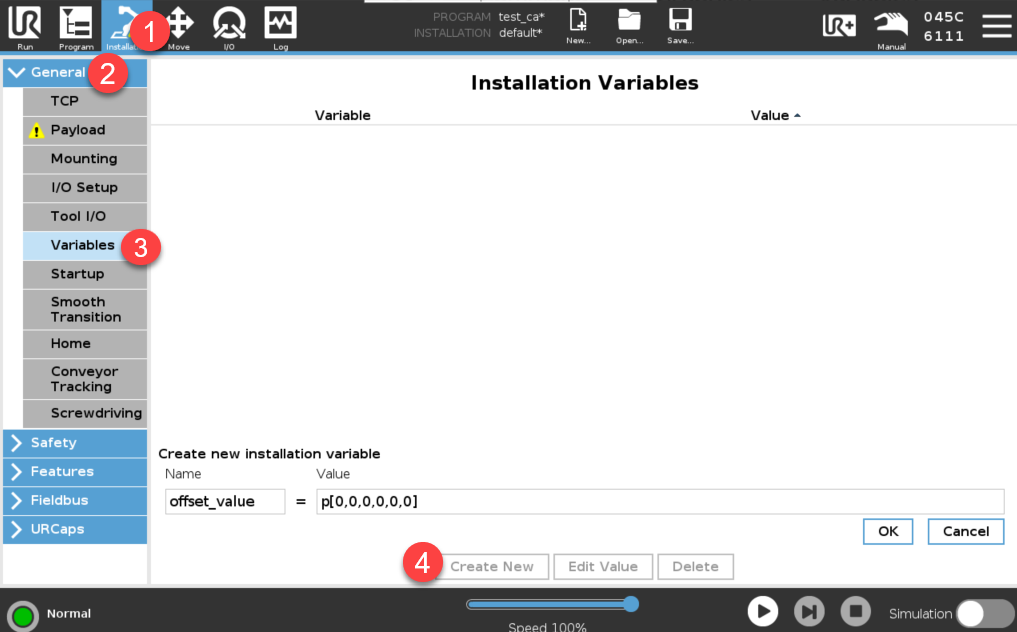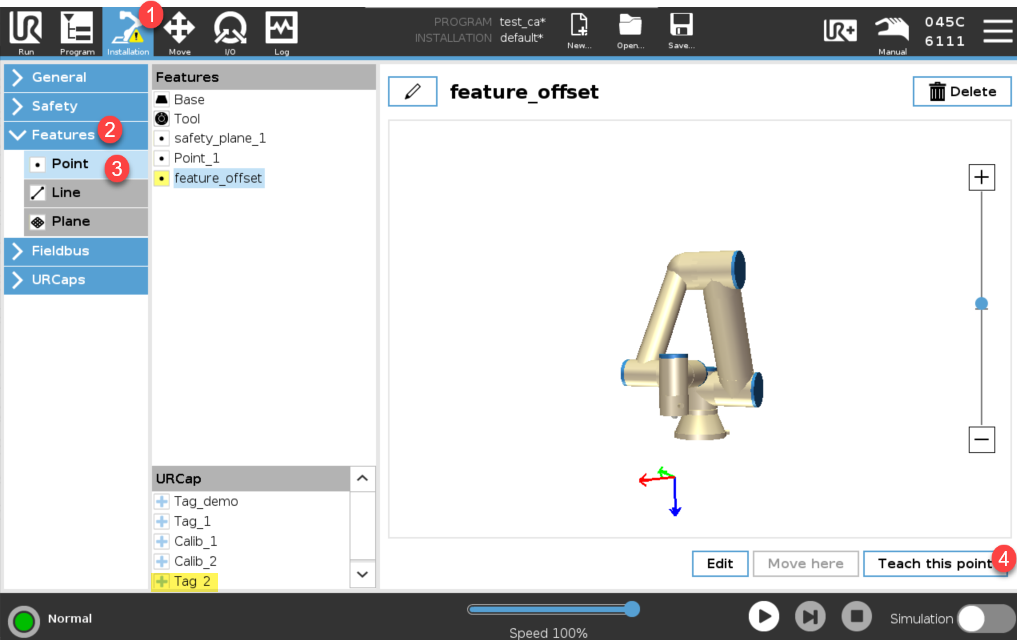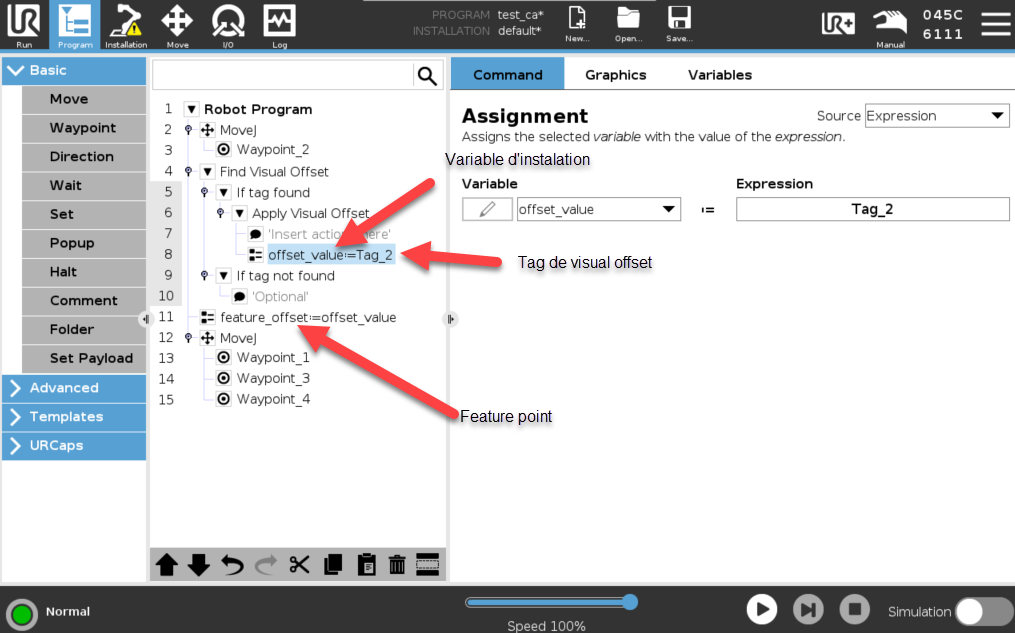How to Modify the Frame of a Visual Offset
Saving and reusing visual offsets via feature points and installation variables in wrist‑camera workflows
This document explains how to save a visual offset once it is found—and then reuse that offset later in a program by creating an installation variable and a feature point. This avoids having to constantly re-run the Find Visual Offset node.
Create an Installation Variable
-
Define a variable that will store the offset value.
Example:offset_value = p[0,0,0,0,0,0](representing a 6‑axis pose). -
This variable holds the transformation (offset) calculated by your visual offset routine.

Set Up a Feature Point
-
Create a feature point that represents a physical target in your work cell.
-
Teach this feature point in the database reference frame (same frame your visual offset tag uses).
-
When taught, the feature point location should match where your offset tag is located.

Saving the Offset
-
In your program, once the visual offset is located (via “Find Visual Offset”), store its result in the
offset_valueinstallation variable. -
The offset from the visual sensor becomes accessible elsewhere through that variable.

-
Apply the Offset via Feature Point
-
Use the
offset_valuewith the feature point to create a new “feature_offset” (or similar), which combines the feature point’s location and offset. -
Wherever you would normally move relative to the visual offset (tag), you can now move relative to feature_offset instead.
-
-
Benefits
-
You don't need to repeatedly run “Find Visual Offset” before every motion that uses that offset.
-
Makes the program more stable, cleaner, and faster — especially useful if the offset is unlikely to change between runs.
-